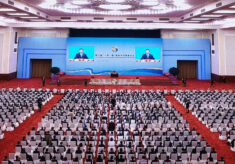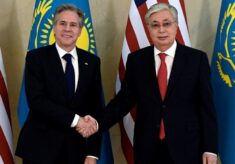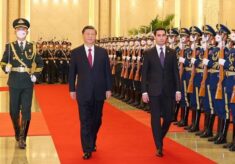Even if Central Asia is not the main priority in the US foreign policy, the future approach of the new Biden administration towards the region will be geopolitically relevant, in order to better balance the Sino-Russian dominant influence as well as to support the efforts of Central Asian republics to undertake an autonomous foreign policy, mainly focussed on their own strategic interests.
Biden appears oriented towards following the US Strategy for Central Asia 2019–2025, launched by the former Trump administration, also because US interests in the region have not changed: the promotion of a political dialogue as well as a trade cooperation based on the economy market principles, support for a democratisation process, security and stability remain key drivers [“United States Strategy for Central Asia 2019–2025: Advancing Sovereignty and Economic Prosperity”, US Department of State, February 5, 2020]. The strategy also emphasises that the five Central Asian republics and Afghanistan have to be considered as different dossiers. Washington’s policy toward Afghanistan (mainly based on security issues and opposing the Islamic State terrorist threat) must not influence US relations with Central Asian states.
Unlike the incumbent administration, Biden’s approach on foreign policy appears to be more marked by issues such as human rights protection, the promotion of the rule of law and the strengthening of democratic freedoms. Biden has expressly criticised Beijing about the condition of the Uighur population in the Xinjiang region, a sensitive issue that will necessarily affect also US relations with Kazakhstan, Kyrgyzstan and Tajikistan.
These countries share borders with Xinjiang, and have long hosted Uighur communities in their territory: Beijing’s need to extend a preventive control for security reasons on these other Uighur minorities can influence these states [Ayjaz Wan, Beyond “Grievance States” — Biden on Central Asia, Observer Research Foundation Online, November 10, 2020].
From the Central Asian perspective, a concrete engagement of the US is positively welcome because this could help them to diversify their foreign policies. On the other hand an excessive emphasis on the rule of law, authoritarianism and democratic reforms, could freeze any cooperation, as it happened in 2005 when the USA were perceived as the main supporters of the so-called “Tulip Revolution” in Kyrgyzstan and generally of the “Coloured Revolutions” in the post-Soviet space.
The current democratic involution in Kyrgyzstan following the so-called “third revolution” represents an immediate test for Biden’s approach, with an emerging strong man (the acting President and Prime Minister Japarov) who would like to return to a presidential political system amending again the constitution [Fabio Indeo, Kyrgyzstan: a new political “revolution” which worried Russia and China NDCF Strategic Trends, October 2020].

















